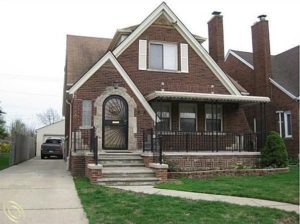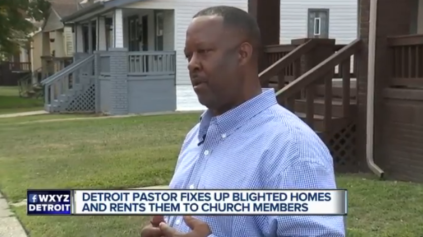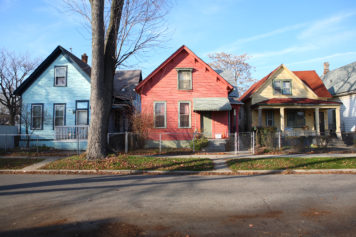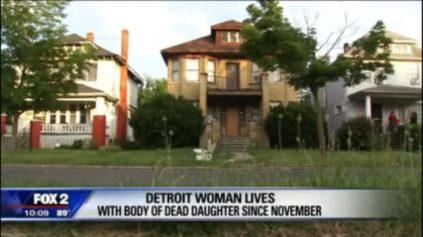
This crackdown has been deemed unfair by many because the taxes owed on properties are dramatically inflated, as the county assesses property taxes on the basis of their value before the city fell into a woeful financial quagmire.
More than 6,000 people attended a Wayne County event that was designed to help homeowners set up payment arrangements on their back taxes. Most left disheartened.
The stories are painful. Krystal Malone is $9,000 behind in taxes on a house worth $10,000, as Al-Jazeera America pointed out. Gabriel McNeil purchased a house for $1,500, not knowing there was 10 times that owed in back taxes on the property. Brenda Johnson inherited a house when a relative died, but several thousand dollars in back taxes are owed on it.
As unfortunate as their stories are, they are just a fraction of the number of people who are in similar, untenable binds. Tens of thousands of Detroiters face this dilemma, an indictment on how a city is not looking to take care of its own, a particularly painful pill in the African-American community.
It did not look so bleak in November, when the city emerged from the largest municipal bankruptcy in U.S. history and control was handed back to the city government from state-appointed emergency manager Kevyn Orr. There were hints of an upward swing: people stopped fleeing the city as they had in dropping it from 2 million residents to less than 700,000; debts were under control; some new businesses opened downtown; and a sense that the city was rebounding filled the cold air.
That was then. The county’s tax grab impacts about 76,000 properties, and 35,000 or so are occupied, Dave Szymanski, Wayne County deputy treasure said.
“I just don’t want to get padlocks on my door and I can’t get my personal property out,” Johnson said to Al-Jazeera. “I’m just trying to buy some time.”
Remarkably, there were 70,500 tax foreclosures from 2009 to 2013, according to a Detroit Blight Removal Task Force Plan.
“That’s probably a higher rate than anywhere in the world,” Szymanski said.
Worse, the county’s plan would affect 97,733 people, according to an analysis from Detroit-based Loveland Technologies, which collects data on every parcel of land in Detroit for an app.
Outraged activists make a strong point: several state and county policies have put homeowners at a severe disadvantage in Detroit. The state charges 18 percent interest on all past-due taxes. By contrast, New York charges 9 percent on homes worth less than $250,000. Big difference. Properties in Detroit often reflect what they might have sold for decades ago, before the city was in financial crisis. That means some residents pay thousands in taxes on properties valued now at just thousands of dollars.
Further, instead of using hundreds of millions of federal dollars to help homeowners stay in their residences, the city could use the money to knock down abandoned houses in blighted communities.
Detractors of the county’s decisions insist it would be better for the city’s economy to keep people in their homes through extended payment plans.
“What the county is doing with these foreclosures is not only inhumane and unjust but stupid,” said Joe McGuire, an activist with nonprofit Detroit Eviction Defense. “If it’s about revenue, it’s short-term, easy revenue. Without people owning their homes, the city’s not going to have a sustainable future.”


